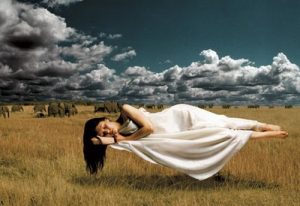perception
Yoga dictionary. Viparea
 Everything is conditioned by the perception of the one who experiences this or that event. The perception of reality is influenced by the so – called “Vritti”-fluctuations of the mind, about which Patanjali writes in the yoga sutras. There are five types of Vritti. This is what Patanjali writes in the Sutra of the sixth Chapter of the first: right knowledge, wrong knowledge, fantasy, dream and memories. One type of Vritti – Viparyaya is false knowledge.
Everything is conditioned by the perception of the one who experiences this or that event. The perception of reality is influenced by the so – called “Vritti”-fluctuations of the mind, about which Patanjali writes in the yoga sutras. There are five types of Vritti. This is what Patanjali writes in the Sutra of the sixth Chapter of the first: right knowledge, wrong knowledge, fantasy, dream and memories. One type of Vritti – Viparyaya is false knowledge.
In Sanskrit “viparyaya” means “false knowledge”or” wrong knowledge”. The concept of “Viparyaya” Patanjali reveals in the Sutra of the eighth Chapter of the first. A. Bailey’s translation of the Sutra reads as follows:”Wrong knowledge is based on the perception of form, and not on the state of being.” That is, with this perception, the person behind the form does not see the essence. Continue reading
Yoga Nidra – magical yogic dream (part 1)
 Do you agree with the statement that relaxation for modern Westerners is an art that needs to be learned? Or are you convinced that relaxing means coming home, leaning back in an armchair, closing your eyes … Maybe splashing something relaxing in a glass or turning on a relaxing TV / computer? Many believe that it is enough to go to bed and relaxation will come automatically. But why, then, having overslept a seemingly sufficient number of hours, do you wake up tired and broken? Stress becomes habitual, we stop noticing it until it “shoots” with increased pressure, asthma, an ulcer or other bad sore. Thoughts, anxieties and worries are brewed in the head even at night, burdening dreams. Yogis call this dream “Nidra.” But there is another type of sleep, free of burden – this is YOGA NIDRA or yogic dream or “dream without dreams” as it is also called. Continue reading
Do you agree with the statement that relaxation for modern Westerners is an art that needs to be learned? Or are you convinced that relaxing means coming home, leaning back in an armchair, closing your eyes … Maybe splashing something relaxing in a glass or turning on a relaxing TV / computer? Many believe that it is enough to go to bed and relaxation will come automatically. But why, then, having overslept a seemingly sufficient number of hours, do you wake up tired and broken? Stress becomes habitual, we stop noticing it until it “shoots” with increased pressure, asthma, an ulcer or other bad sore. Thoughts, anxieties and worries are brewed in the head even at night, burdening dreams. Yogis call this dream “Nidra.” But there is another type of sleep, free of burden – this is YOGA NIDRA or yogic dream or “dream without dreams” as it is also called. Continue reading




